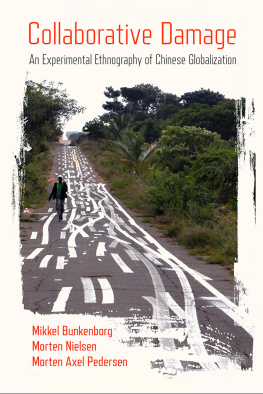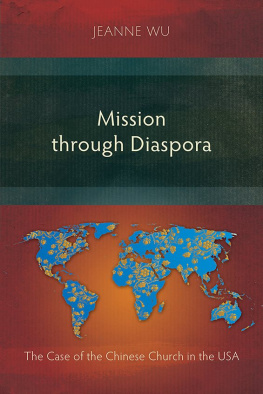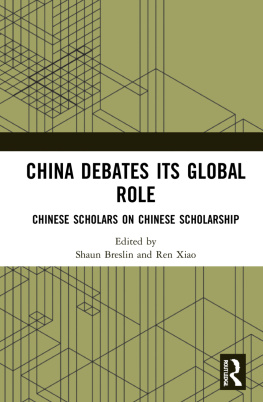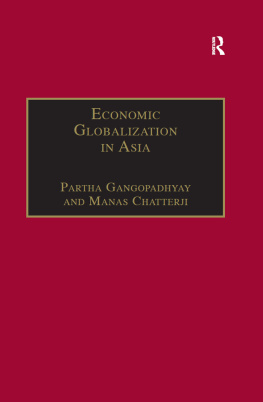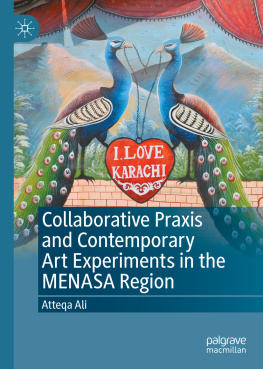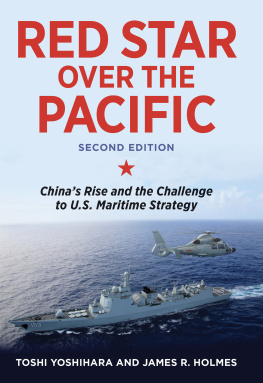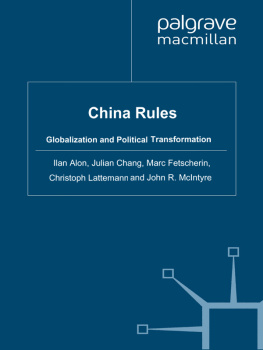Mikkel Bunkenborg - Collaborative Damage: An Experimental Ethnography of Chinese Globalization
Here you can read online Mikkel Bunkenborg - Collaborative Damage: An Experimental Ethnography of Chinese Globalization full text of the book (entire story) in english for free. Download pdf and epub, get meaning, cover and reviews about this ebook. City: Ithaca, year: 2022, publisher: Cornell University Press, genre: Science. Description of the work, (preface) as well as reviews are available. Best literature library LitArk.com created for fans of good reading and offers a wide selection of genres:
Romance novel
Science fiction
Adventure
Detective
Science
History
Home and family
Prose
Art
Politics
Computer
Non-fiction
Religion
Business
Children
Humor
Choose a favorite category and find really read worthwhile books. Enjoy immersion in the world of imagination, feel the emotions of the characters or learn something new for yourself, make an fascinating discovery.
- Book:Collaborative Damage: An Experimental Ethnography of Chinese Globalization
- Author:
- Publisher:Cornell University Press
- Genre:
- Year:2022
- City:Ithaca
- Rating:3 / 5
- Favourites:Add to favourites
- Your mark:
Collaborative Damage: An Experimental Ethnography of Chinese Globalization: summary, description and annotation
We offer to read an annotation, description, summary or preface (depends on what the author of the book "Collaborative Damage: An Experimental Ethnography of Chinese Globalization" wrote himself). If you haven't found the necessary information about the book — write in the comments, we will try to find it.
Collaborative Damageis an experimental ethnography of Chinese globalization that compares data from two frontlines of Chinas global interventionsub-Saharan Africa and Inner/Central Asia. Based on their fieldwork on Chinese infrastructure and resource-extraction projects in Mozambique and Mongolia, Mikkel Bunkenborg, Morten Nielsen, and Morten Axel Pedersen provide new empirical insights into neocolonialism and Sinophobia in the Global South.
The core argument in Collaborative Damage is that the different participants studied in the globalization processeslocal workers and cadres; Chinese managers and entrepreneurs; and the authors themselves, three Danish anthropologistsare intimately linked in paradoxical partnerships of mutual incomprehension. The authors call this collaborative damage, which crucially refers not only to the misunderstandings and conflicts they observed in the field, but also to their own failure to agree about how to interpret the data. Via in-depth case studies and tragicomical tales of friendship, antagonism, irresolvable differences, and carefully maintained indifferences across disparate Sino-local worlds in Africa and Asia, Collaborative Damage tells a wide-ranging story of Chinese globalization in the twenty-first century.
Mikkel Bunkenborg: author's other books
Who wrote Collaborative Damage: An Experimental Ethnography of Chinese Globalization? Find out the surname, the name of the author of the book and a list of all author's works by series.

